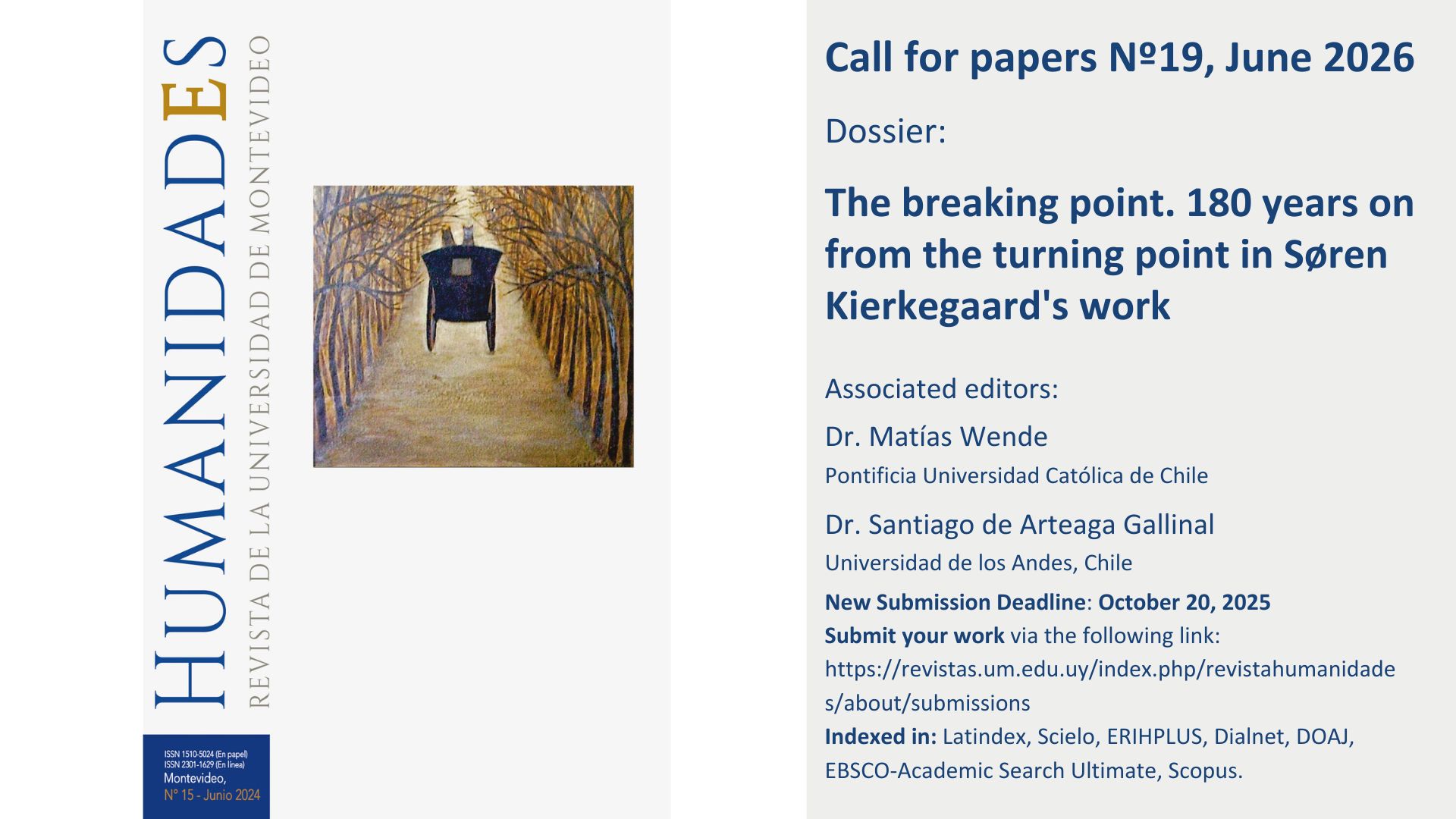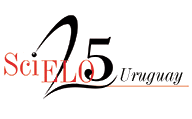CALL FOR PAPERS Nº19, December 2026, "The breaking point. 180 years on from the turning point in Søren Kierkegaard's work"NEW DEADLINE:

Call for papers for the "Studies" section of issue no. 19 (June 2025)
Dossier: The breaking point. 180 years on from the turning point in Søren Kierkegaard's work
Editors associated with this issue:
Dr. Matías Wende, Pontificia Universidad Católica de Chile, Chile, matias.wende@uc.cl
Dr. Santiago de Arteaga Gallinal, Universidad de los Andes, Chile, sdearteaga@uandes.cl
In mid-December 1845, Søren Kierkegaard submitted for printing a manuscript entitled Post Scriptum non scientificum and conclusive to the Philosophical Crumbs. The text was in fact intended as a continuation of an earlier work. The detail is that the main work was little more than eighty pages long and the addition amounted to more than five hundred. Another notable feature of this Post Scriptum is its conclusive character. Kierkegaard was entertaining the idea of giving up writing and moving to a rural parish. On 7 February 1846, he writes in one of his diaries: "I have asked God to help me, for it has long been clear to me that I cannot continue as a writer [...]. That is why I have not begun anything new while I am going through the proofs [of the Post Scriptum], except for a short review of Two Epochs, which, again, is conclusive". Post Scriptum appeared in showcases on 27 February, and a little over a month later, on 30 March, the review was also on sale. And yet Kierkegaard did not abandon his task as an author. Given Kierkegaard's well-known polemical character towards the established Church of Denmark towards the end of his life, it is hard to imagine him as a pastor. Far from being an outburst of madness prior to a death by exhaustion, we can note a turn in Kierkegaard's production that leads to an opposition to the ecclesiastical-political order. This break, motivated by Kierkegaard's public disagreement with a satirical newspaper, came to fruition in 1846 with the publication of the Post Scriptum and the literary review. In the first work, we find one of Kierkegaard's most finished philosophical constructions. In the second, on the other hand, we find a very profound social and cultural critique of the vices of intellectualist and elitist modernity. On 24 January 1847, Kierkegaard documented in his personal papers January 24, 1847, Kierkegaard documents in his personal papers: "Praise God that the assaults of the barbarous mob have fallen upon me. Thus I have gained time to realise inwardly and to convince myself that it was an unpromising idea to want to live in a rural parish and to do penance in seclusion and oblivion. Now I am more resolute and rooted in my place than ever".
On the 180th anniversary of the publication of the Post Scriptum and the literature review in 2026, it seems necessary to highlight the place of these texts in Kierkegaard's complex creative plexus. This involves projecting four axes:
1) Kierkegaard's production up to 1846, 2) the philosophical focus of the Post Scriptum and the critical focus of the literature review, 3) the evolution of Kierkegaard's work after March 1846, and 4) Kierkegaard's philosophical-critical influence on contemporaneity. Along with the thematic novelty of the articles we include in the dossier, we consider it important to advance in Latin American publications of the first scientific level in Kierkegaardian studies.
Main lines: modern philosophy, social philosophy, political philosophy, philosophy of religion.
Keywords: modernity, existentialism, christianity, cultural criticism, Søren Kierkegaard.
New submissions deadline: 20 October 2025.
Texts may be submitted in Spanish, English and Portuguese.
Contributions must conform to the editorial guidelines of the journal: http://revistas.um.edu.uy/index.php/revistahumanidades/about/submissions
Papers must be submitted via the following link: https://revistas.um.edu.uy/index.php/revistahumanidades/about/submissions
Humanidades: revista de la Universidad de Montevideo is a scientific, peer-reviewed journal of Philosophy, History and Literature, published every six months in June and December of each year and aimed at a specialised readership. Its aim is to constitute an open forum in which the disciplines dialogue with each other and contribute new knowledge. Indexed in: Latindex, Scielo, ERIHPLUS, Dialnet, DOAJ, EBSCO-Academic Search Ultimate, Scopus.






















 This work is under a
This work is under a 